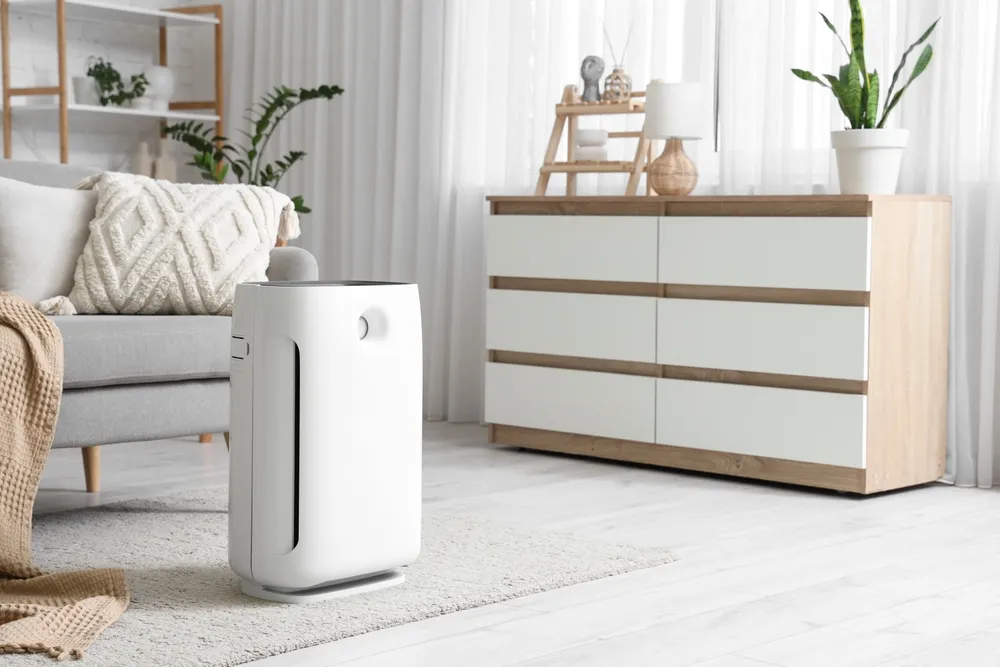The importance of sleep is well known. It allows for our entire body to recover, stay healthy and allows for us to function properly.
But unfortunately for many of us, getting a good night’s sleep is hard to achieve. For example, you try to go to bed early but can’t seem to fall asleep. Or perhaps you find yourself waking up multiple times throughout the night.
There are a number of reasons why this might be happening. It could be an overwhelming amount of stress or external distractions like noise. But have you ever considered that the temperature is affecting your sleep?
That’s right, the temperature of the room you sleep in might be hindering your ability to get some quality shut eye. Finding an ideal, comfortable temperature might be difficult, but in this article we go over why you need to find that sweet spot!
Why does temperature matter?
The temperature of your sleeping quarters has a large impact on your ability to get a night of rest. In fact, scientific studies have revealed that temperature is one of the most important factors in achieving great sleep. So in what ways does temperature affect your sleep?
Too Hot
Sleeping quarters that are too hot can cause discomfort and restlessness. Whether this comes from poor air circulation or overly warm blankets and quilts, it’s important to ensure that your sleeping environment isn’t too hot. Excessively hot room with a higher temperature can cause the following:
Increased Fatigue
Too hot temperatures can add more fatigue to an already tired body. This is because your body works harder to keep your body cool by sweating. This eventually leads to the inability to actually fall asleep! It’s not surprising, try sleeping in a puddle of your own sweat!
Dehydration
As your body sweats to try and keep you cool, you will also begin to find yourself becoming dehydrated. While this might be quickly fixed with a glass of water, you put yourself at risk of continually waking up in the middle of the night in order to do so.
Poor Sleep Efficiency
Sleep efficiency refers to the percentage of time spent asleep while in bed. In other words, you might be lying down in bed, but are you actually asleep? If not, you have poor sleep efficiency. An overly hot room can lead to poor sleep efficiency where you are unable to fall asleep or find yourself waking up too often.
Too Cold
On the other end of the spectrum, a temperature that is excessively cold can have dire consequences for not only your sleep but your body. A lack of coverings and heat can lead to cold temperatures, which in turn causes the following:
Insomnia
The way your body responds to cold is by creating movement such as shivering. So how can you possibly go to sleep when you’re too busy shivering and chattering your teeth? Freezing temperatures hinder your ability to fall asleep in the first place.
Risk of sickness
Overly cold sleeping environments may pose a risk to your health and ability to recover from illnesses. Many researchers believe that overexposure to cold temperatures have a negative effect on your immune system. This makes it harder to both fight off infections or recover from current illnesses.
So what is the ideal sleeping temperature?
There is no concrete answer to this question, since everyone’s bodies are different. But according to researchers, it is widely agreed that an average room temperature between 18℃ – 22℃ is the most comfortable temperature to sleep in. Keeping your bedroom temperature within this range will greatly improve the quality of your sleep.
How to change the temperature
In order to find that goldilocks range of temperature, you can either strip down or bundle up, depending if your room is too hot or too cold. This means you can either remove layers of coverings (such as blankets and clothes) to cool down or add more to warm yourself up (such as wearing warm sleepwear or adding extra blankets).
Here are some other ways to adjust and find a comfortable temperature:
- Adjust and setting your thermostat accordingly
- Utilise fans or heaters to change temperature
- Take an appropriately-heated shower an hour or two before going to sleep
- Open or close windows to keep heat in or to improve ventilation
Find the ideal room temperature for you
By now you would have learned just how important the temperature of your sleeping environment is. It doesn’t matter whether it’s too hot or too cold. Bottom line is that without finding your own personal comfortable temperature, you won’t be sleeping well. So channel your inner Goldilocks and find a temperature that’s just right!
Enjoy this article? For more articles which help you live a better life, check out the OSIM UK Wellness Hub! We have great, easy-to-read articles which are written with your health and wellbeing in mind.




